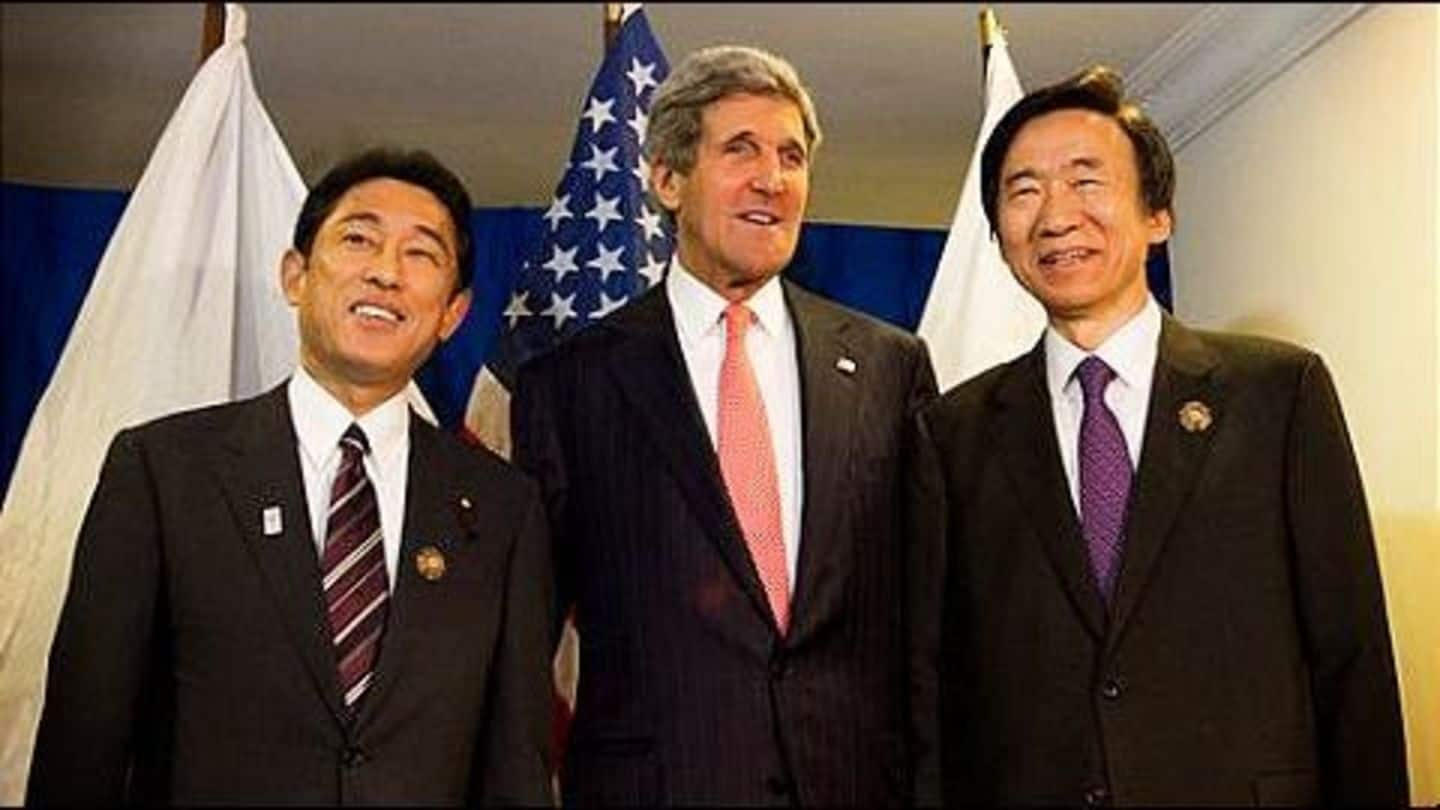
Japan and South Korea settle 'comfort women' issue
What's the story
Japan and South Korea reached a historic agreement to settle the issue of "comfort women" forced to work in Japanese military brothels in World War 2.
The agreement was reached after a meeting between Japanese Foreign Minister Fumio Kishida and his South Korean counterpart Yun Byung-se in Seoul.
This issue of "comfort women" was the key cause of bad blood between the Asian powers.
Introduction
Who were the comfort women?
Thousands of women were forced into working in front-line brothels as sex slaves for Japanese soldiers during World War II.
Most of these women were from Korea which was a Japanese colony from 1910-1945, while the rest were from China, Indonesia and the Philippines.
Some say there were as many as 2,00,000 "comfort women" while others hold that the number could be between 3,60,000-4,10,000.
Do you know?
Surviving 'comfort women'
Out of the tens of thousands of women forced to work as sex slaves for the Japanese army in World War II, only 46 are alive today. They are all in their late-eighties and live in South Korea.
4 Aug 1993
Japan admits army's role in WWII sex slavery
After decades of denying involvement, the Japanese government acknowledged its army's role in the World War II sex slavery issue.
The report stated that many women lived as sex slaves in military captivity from 1932 till the end of the war in 1945.
Yohei Kono, the chief cabinet secretary, stated: "We shall face squarely the historical facts as described above, instead of evading them."
1995
Japan helps set up Asian Women's Fund
The Japanese government set up the Asian Women's Fund (AWF) to compensate "comfort women".
The fund would provide about $18,000 raised from Japanese people to each survivor-applicant as "atonement money", along with letters of apology from the Japanese PM and AWF President.
It would also aim to implement welfare projects and programmes.
The AWF was dissolved on 31 March 2007 after completion of projects.
2 Nov 2015
Japan and South Korea to accelerate talks
After the first formal leaders' meeting between Japan and South Korea in three-and-a-half years, the two countries agreed to accelerate talks on the "comfort women" issue.
South Korean PM Park Geun-hye urged the countries to "heal the wounds of the past".
Japanese PM Shinzo Abe stated that the two countries "should not leave behind difficulties for future generations", and work towards a co-operative relationship.
Agreement
The terms of the Japan-South Korea agreement
As per the agreement between Japan and South Korea, Japan will pay $8.3 million to South Korea to aid the "comfort women".
The money will also be accompanied by an apology from Japanese Prime Minister Shinzo Abe, and an acceptance of "deep responsibility" for the issue.
South Korea will consider the matter resolved "finally and irreversibly" if Japan lives up to its promises.
Reaction
Survivors react to the agreement
Japanese compensation may have thawed relations with Korea but former 'comfort women' lashed out at the agreement.
88-year-old Lee Yong-Soo said, "I wonder whether the talks took place with the victims really in mind. We're not after the money."
The women said that monetary compensation was not what they were after, Japan had dehumanised them and they wanted their dignity restored.
28 Dec 2015
Japan-South Korea agreement beneficial for USA
In the face of an unpredictable North Korea and an increasingly assertive China, USA had been pushing for improved relations between its two major Asian allies.
The tensions between Tokyo and Seoul had prevented them from sharing sensitive military information with each other, which had to be re-routed through the United States.
Furthermore, the two nations together have about 80,000 US troops stationed there.